IAEA chief: We are moving into more cooperative relationship with Iran
The director general of the International Atomic Energy Agency (IAEA) says the UN nuclear watchdog and Tehran are developing a more cooperative relationship in order to resolve what he called open issues with Iran.
Rafael Mariano Grossi made the remarks in a press conference in Vienna on Saturday after returning from Iran where he had talks with senior Iranian officials, including head of the Atomic Energy Organization of Iran (AEOI) Mohammad Eslami, and Iran’s Foreign Minister Hossein Amir-Abdollahian.
“We are moving into a more cooperative relationship, things are moving toward a better atmosphere,” he said at the presser that was held at the Vienna International Airport following his return from Tehran.
The IAEA chief added that when in Tehran, he had held “very good talks” with the Iranian foreign minister.
Speaking to Grossi in Tehran earlier on Saturday, the top Iranian diplomat stressed the importance of improving cooperation with the UN nuclear agency on issues beyond supervision and inspection, including the IAEA's support for Iran's peaceful nuclear industry.
Amir-Abdollahian also hoped that the IAEA chief's visit to Tehran would further promote mutual confidence and cooperation.
“Iran has made commitment to work with the IAEA,” Grossi said of the proceedings of his visit to the Iranian capital.
At the end of the IAEA chief's visit to Tehran, Eslami and Grossi issued a joint statement on the importance of accelerating and strengthening their cooperation and dialogue in order to solve the remaining issues between the two sides.
According to the statement, the AEOI will provide to the IAEA, no later than March 20, 2022, written explanations, including related supporting documents to the questions raised by the agency which have not been addressed by Iran on the issues related to three locations where the IAEA claimed it had found particles of processed uranium.
“We are continuing with process of clarifying issues related to [some] locations in Iran,” the IAEA chief likewise noted with respect to the statement, adding, “By June, we are trying to offer conclusion on Iran dossier.”
There, however, he stated, “are no pre-defined outcomes in investigation of the open issues in Iran.”
“Conclusion can be final or partial but I hope everything will go well,” he observed.
Grossi said he did not expect the process of resolving the open issues to be mentioned “in agreement to salvage” a 2015 deal between Iran and others.
The Austrian capital has been hosting eight rounds of talks since last year aimed at reviving the deal, which is officially known as the Joint Comprehensive Plan of Action (JCPOA).
The US unilaterally left the JCPOA in 2018, and restored the sanctions that had been lifted under the accord. Washington’s European allies in the deal—France, Germany, and the United Kingdom—have been toeing the sanctions line closely by ending their trade activities with Iran.
The IAEA director general, meanwhile, said he “thinks the Iranian Foreign Minister intends” to go to Vienna “for conclusion of the talks.”
Grossi, however, alleged that “if clarification of the open issues failed, I think it would be difficult to salvage the 2015 deal.”
Iran VP: IAEA must be impartial toward nuclear activities of member countries
Earlier on Saturday, Grossi met with Iran’s First Vice President Mohammad Mokhber, discussing with him bilateral relations and cooperation between the Islamic Republic and the UN nuclear watchdog.
During their talks, Mokhber stressed the necessity of boosting cooperation between Iran and the IAEA with the goal of developing the country’s peaceful nuclear program.
“The main basis for the formation of the IAEA is [provision] of assistance towards development and propagation of peaceful nuclear science throughout the entire world,” Iran’s vice president said.
“Tehran welcomes further expansion of cooperation with the International Atomic Energy Agency for the peaceful use of the nuclear science,” he added.
Noting that the IAEA must take an impartial approach to member countries’ activities in the area of nuclear energy, including with regard to Iran’s nuclear program, Mokhber added, “The international community expects the agency to follow nuclear programs of [member] countries on the basis of a specialized and expert approach.”
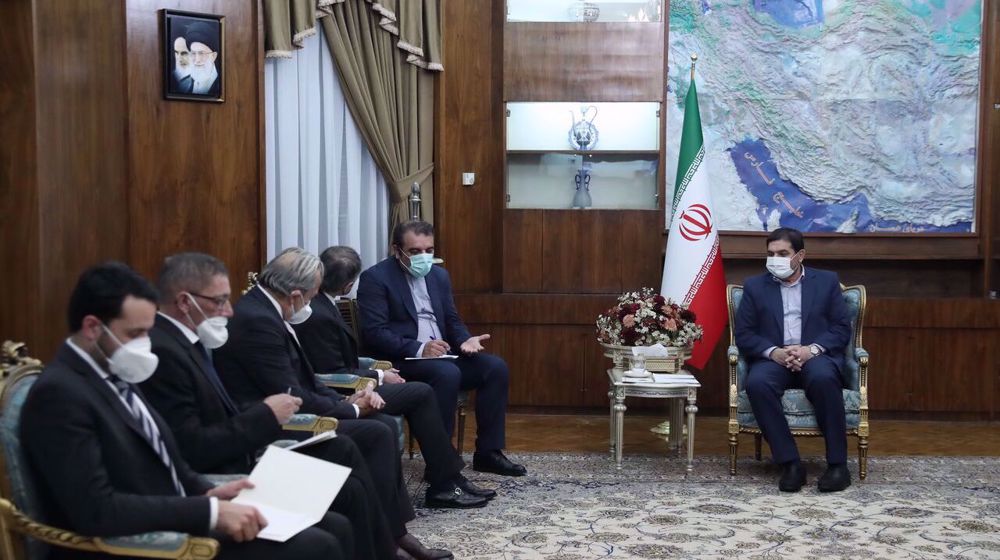
The Iranian official then referred to a fatwa (religious decree) issued by Leader of the Islamic Revolution Ayatollah Seyyed Ali Khamenei, which has forbidden production and deployment of weapons of mass destruction, including nuclear weapons.
“The Islamic Republic has never pursued production of nuclear weapons,” Iran's vice president said, adding, “Nor has the IAEA found any indication contradicting the peaceful nature of the Iranian nuclear program over the past years.”
Grossi, for his part, expressed delight over being able to make the visit to Iran and hold “constructive” talks with the Islamic Republic’s officials.
“We hope that, during future visits to Tehran, we would [be able to] witness that ideas for cooperation in development of [Tehran's] peaceful nuclear program and propagation of this science has been implemented and made operational in Iran.”
All the countries of the world, he asserted, have a right to use the nuclear science for medical, industrial, and energy purposes.
Mutual commitment and cooperation between the Islamic Republic and the agency stand to benefit the people of Iran and the world,” the IAEA chief concluded.
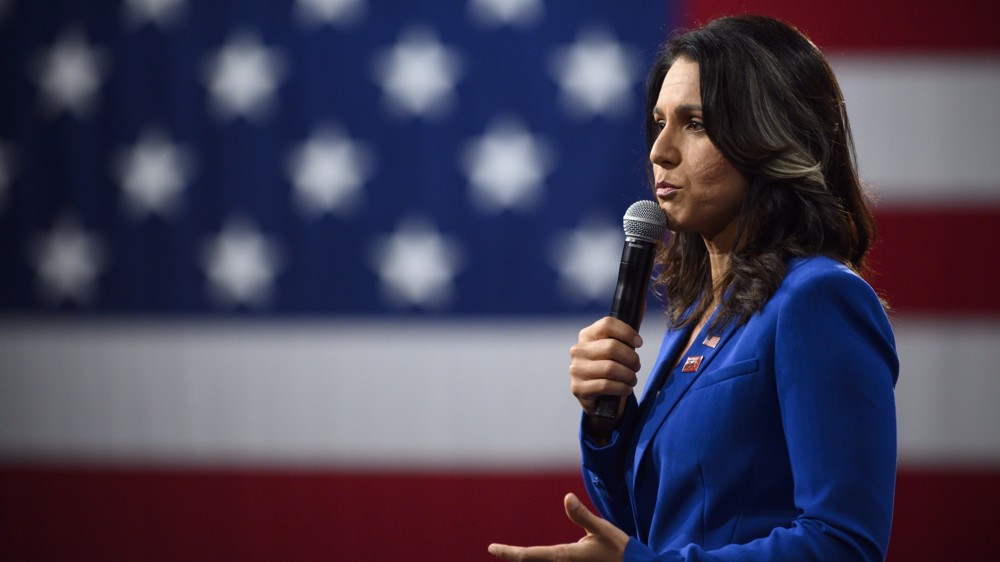
US intel report: Iran ‘not building nuclear weapon’
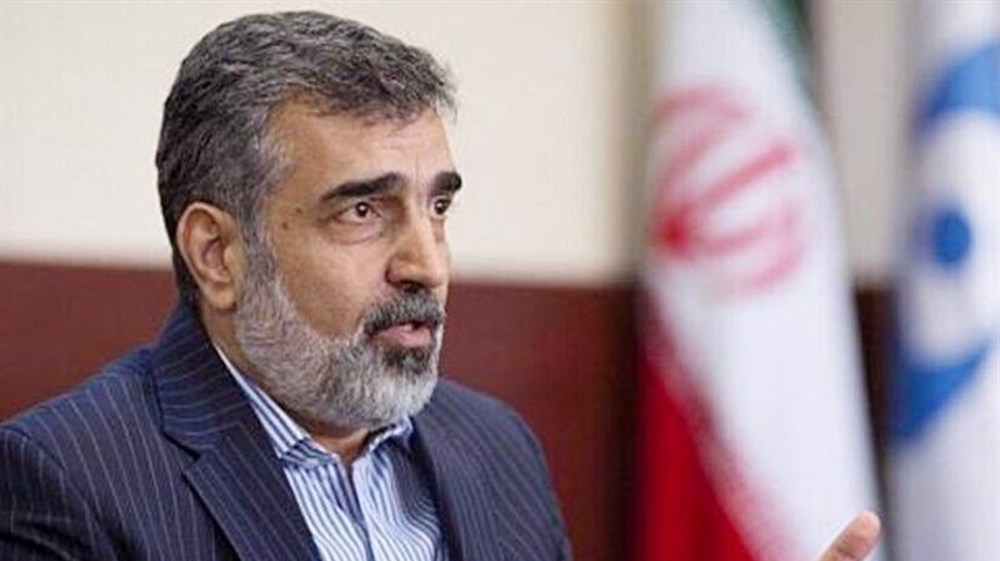
Iran warns against ‘adverse’ consequences of West’s undue pressure
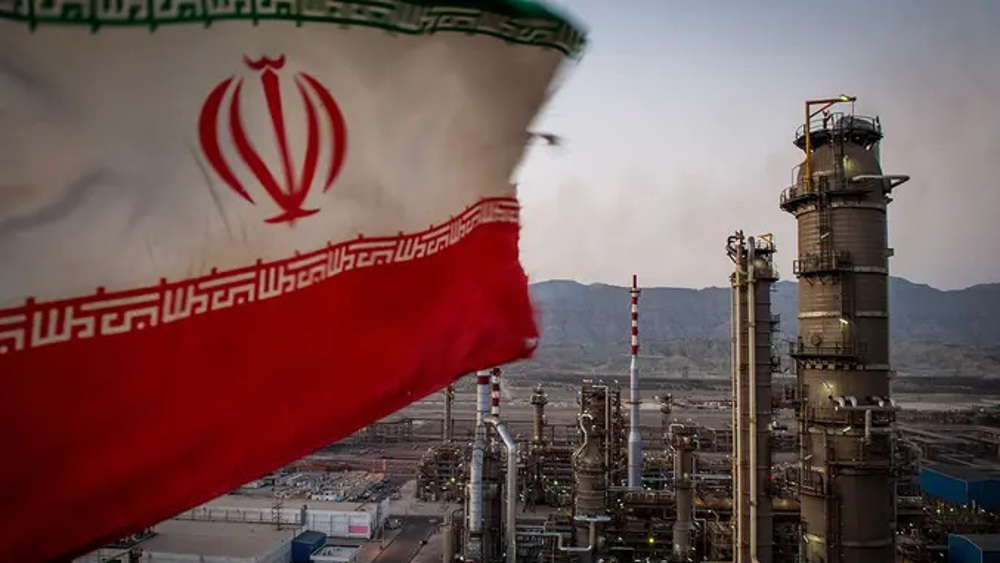
US imposes new round of sanctions against Iran
Israel targets ambulances, health center in south Lebanon despite truce
Iran calls on Shanghai bloc to condemn Trump’s 'dangerous' threats
VIDEO | Iraq’s electricity shortage and US sanctions on Iran
Death toll from Myanmar quake rises to over 3,085
US militarization in West Asia reaches unprecedented levels: Report
VIDEO | The 1992 Clonoe Killings
VIDEO | Columbia University students chain themselves to gate in support of Mahmoud Khalil
Hungary to quit ICC as fugitive Israeli PM visits European state


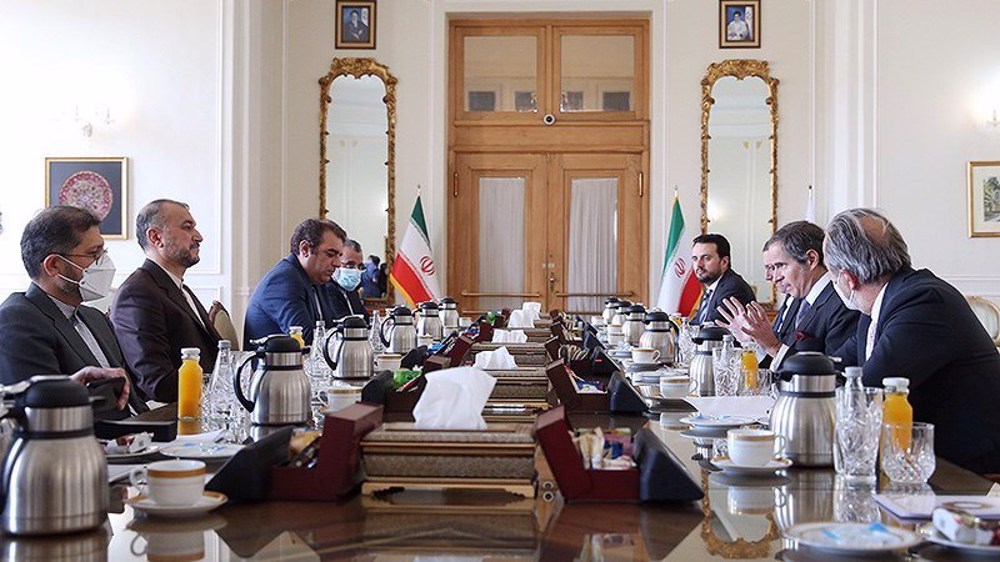
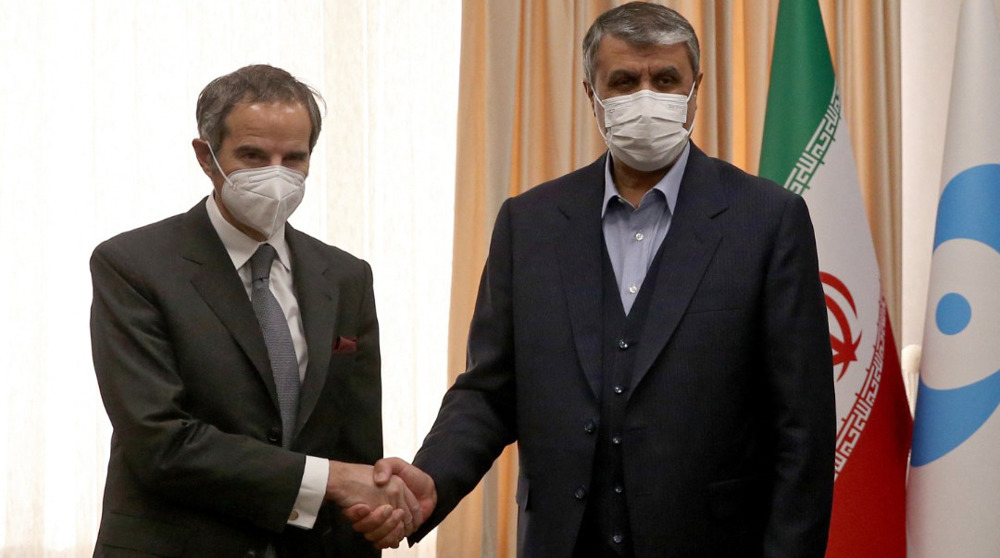



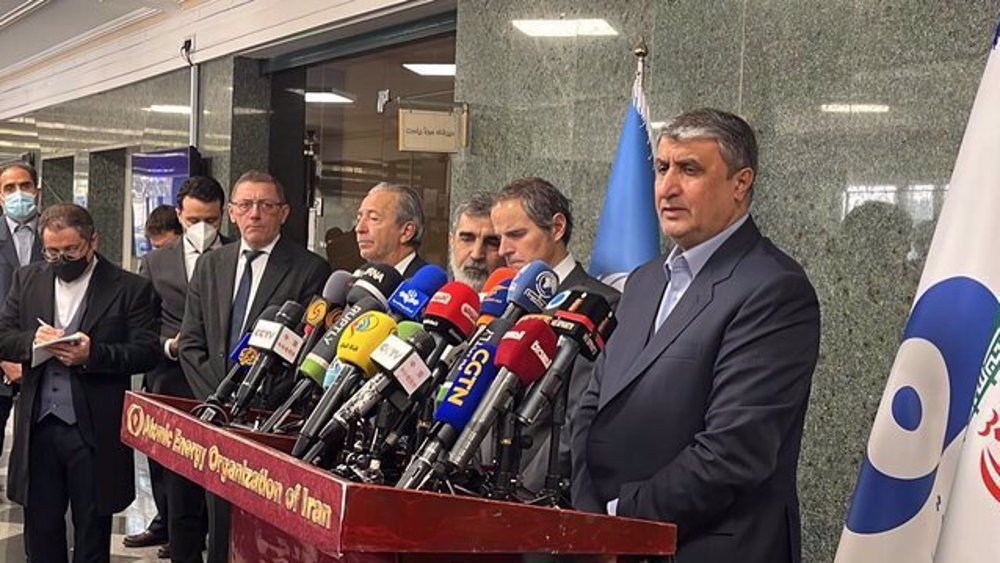
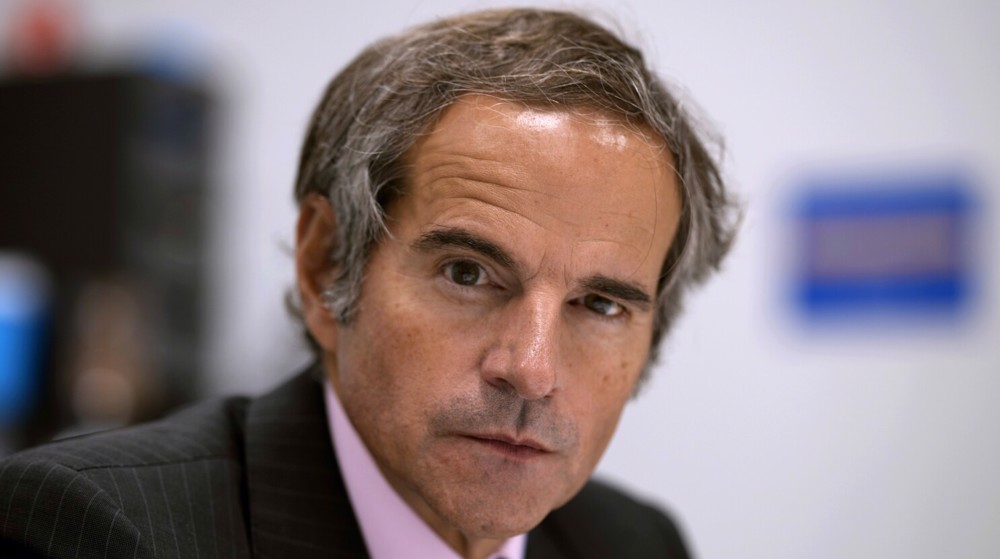
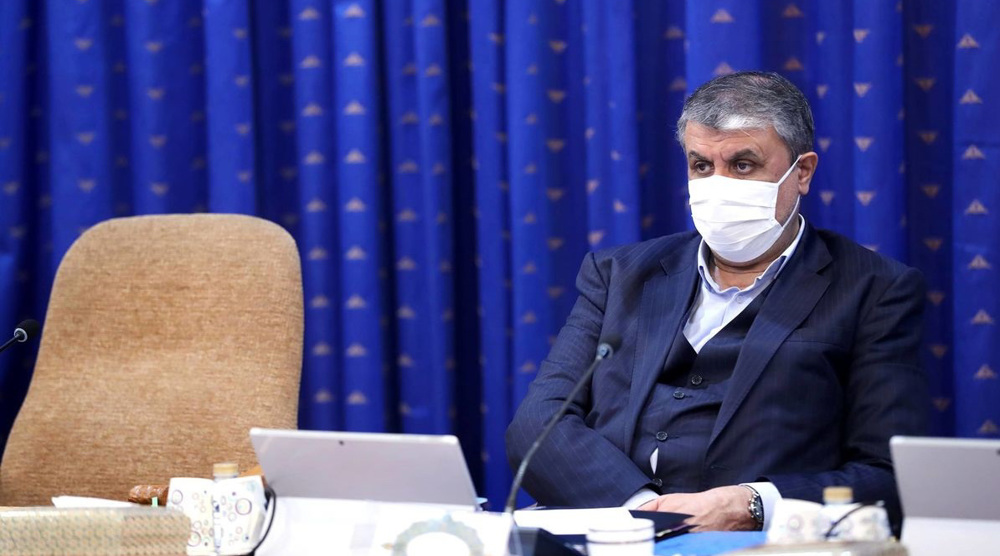

 This makes it easy to access the Press TV website
This makes it easy to access the Press TV website